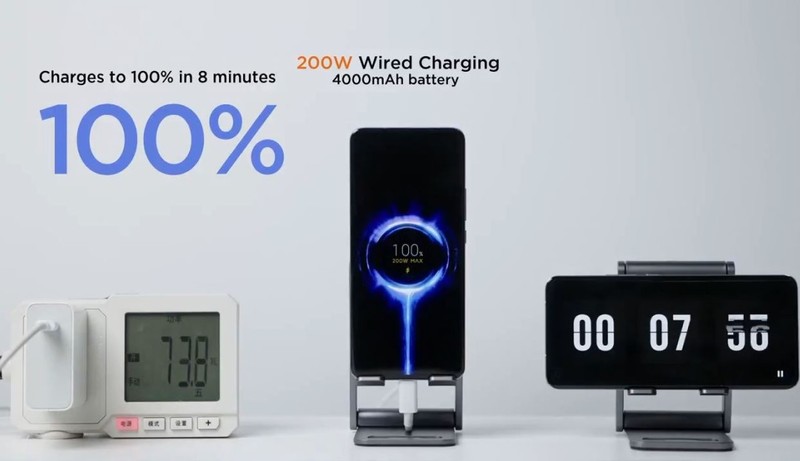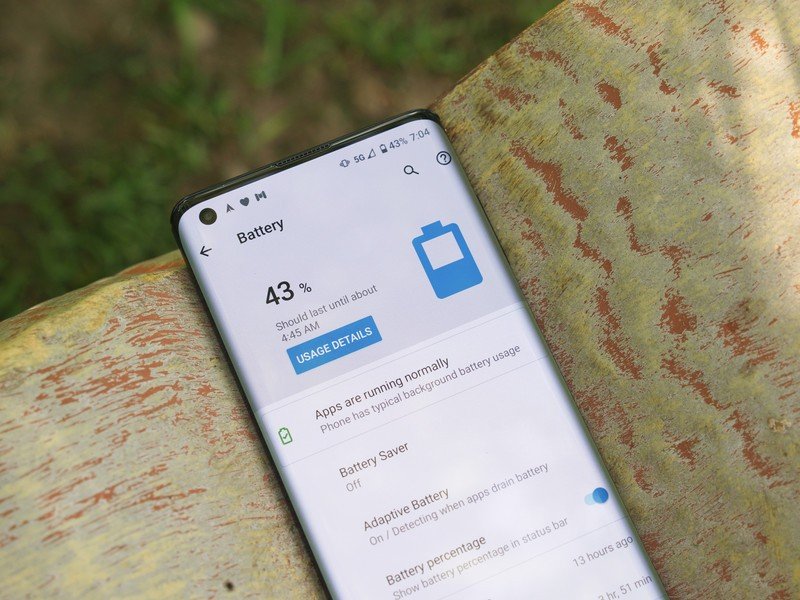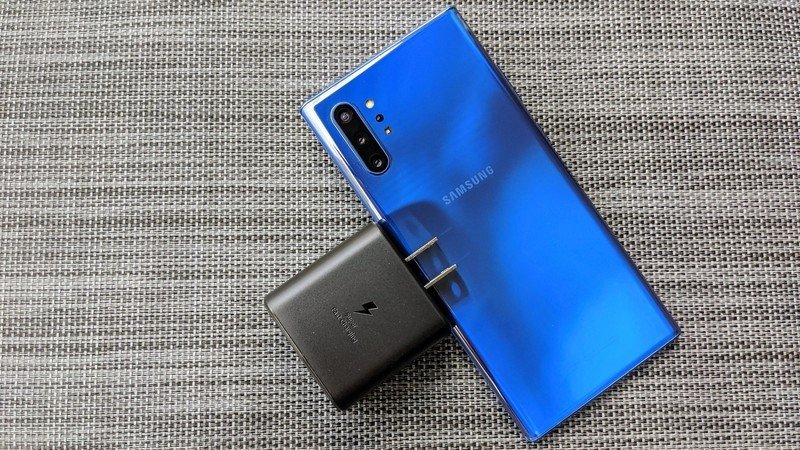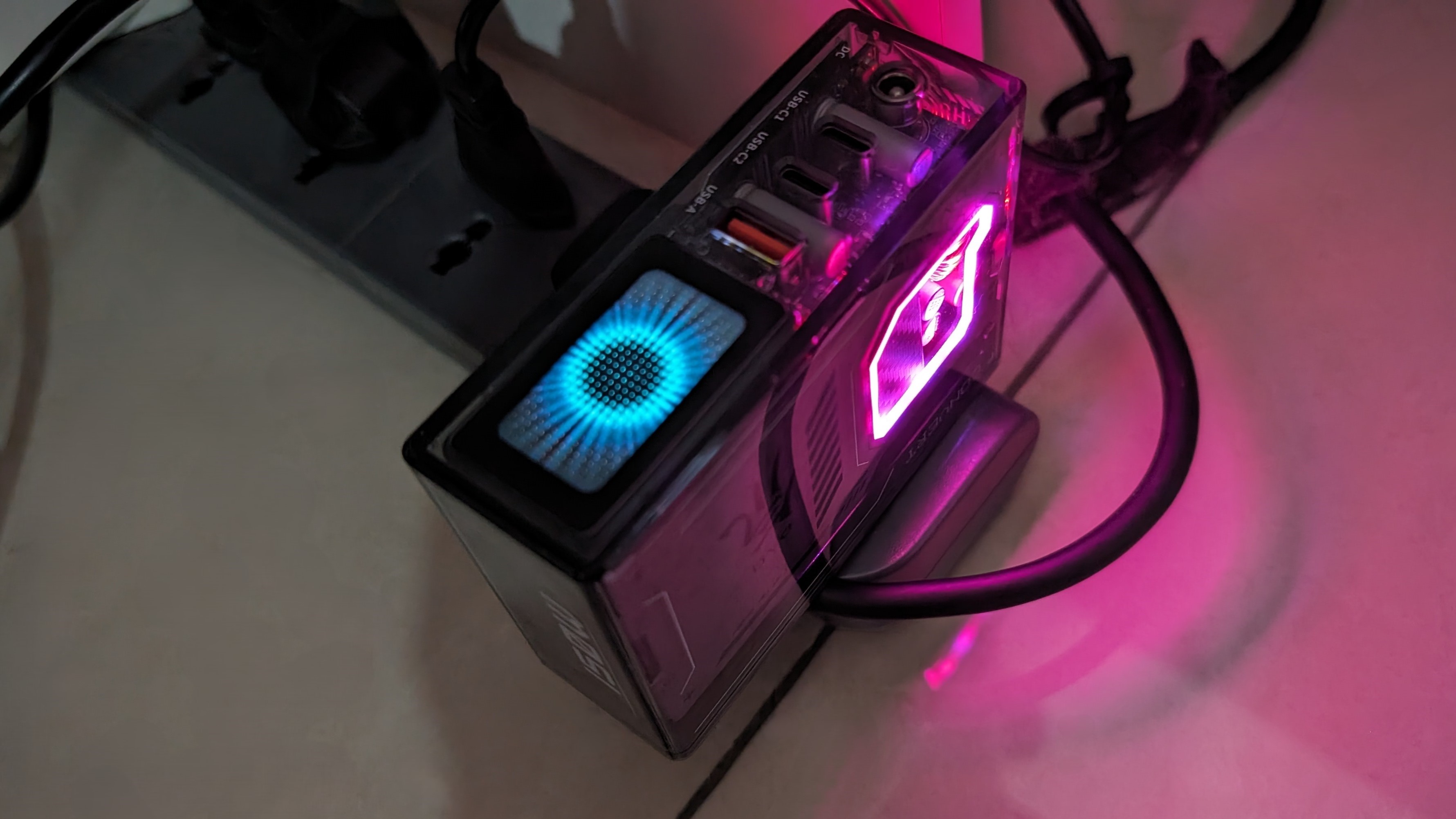Ask Jerry: Does fast charging hurt my battery?
Let's talk about tech.

Welcome to Ask Jerry, where we talk about any and all the questions you might have about the smart things in your life. I'm Jerry, and I have spent the better part of my life working with tech. I have a background in engineering and R&D and have been covering Android and Google for the past 15 years.

Ask Jerry is a column where we answer your burning Android/tech questions with the help of long-time Android Central editor Jerry Hildenbrand.
I'm also really good at researching data about everything — that's a big part of our job here at Android Central — and I love to help people (another big part of our job!). If you have questions about your tech, I'd love to talk about them.
Email me at askjerryac@gmail.com, and I'll try to get things sorted out. You can remain anonymous if you like, and we promise we're not sharing anything we don't cover here.
I look forward to hearing from you!
Is fast charging bad for my phone's battery?

Donna asks:
I asked about buying a charger for my Galaxy phone that could charge it faster and some people were saying that fast charging was bad for the phone battery. If it is then why do companies use it?
Thank you.
Be an expert in 5 minutes
Get the latest news from Android Central, your trusted companion in the world of Android
Hi Donna! That's a really good question because it says a lot about our "disposable" tech life. Because I like to front-load the answer so we can talk more about it, I'll say it like this:
Yes, any type of fast charging will diminish the lifespan of your phone's battery. But we shouldn't worry about it. The benefits will outweigh any issues for almost everyone. Here's why.

We need to start by talking about a battery's lifespan. I don't mean how long it lasts before you need to charge your phone again, but how long it will live before it gets so bad you need to replace it or buy a new phone.
Your phone's battery life is measured in what manufacturers call charge cycles. You've used a charge cycle if you charge your battery from 0% to 100%, and most phone battery life is between 400 and 500 cycles.
Note that your phone battery won't really charge to 100% and will only hit 0% if you leave it off for a long time. There isn't enough measurable difference to matter, though, so relying on the numbers you see on your phone is good enough.
Most of the time, you charge your phone well before it reaches a low enough charge so it turns off. Sometimes, we can't wait to charge it to full and stop charging before it reaches 100%. This still counts against the rated lifespan, and if you could do all the math to turn several partial charges into a full cycle, you'll see issues when you hit about 500 of them.
That doesn't mean your battery stops working once you've hit the magic number. It means your battery won't be able to charge as much and will discharge faster. You can imagine that charge cycle 501 is like charging your battery to 95%, but it reads 100%. Also note that these numbers are estimated, and your battery may be affected a little sooner or might be good a little longer.

Eventually, your battery capacity will be affected enough to notice. You will have to charge more often, and the situation will get worse and worse. You will either need to have the battery replaced or buy a new phone to get things back to how they were.
Batteries, even rechargeable lithium batteries like the ones used in phones, are disposable. When mobile phones first showed up, they all had removable batteries you could change yourself, but now almost every phone has a sealed battery that requires you to take things apart to change them. Phone batteries have come a long way, too, and most people will end up getting a new phone before they need to replace the battery.
Heat will affect the number of charge cycles a battery lasts. Heat is a by-product of charging a battery, and the hotter it gets and how often it gets hot, the shorter its lifespan will be. This is where fast charging will affect things.
Fast charging moves enough energy that it does create more heat than using a slower method of charging a battery. However, safeguards are in place to minimize the effect it will have.

When you fast charge a phone, it doesn't run full blast all the time. Circuits inside the phone and the charger communicate so that charging speed is ramped up until a certain point is reached, then everything slows down to keep the heat from getting out of hand. If the phone battery gets too hot at any time, the charging speed also slows.
These safeguards mean that fast charging will have a minimal effect on your battery's actual lifespan but will still work to get your phone from a low-battery state to one where there is enough charge to use it.
While fast charging does technically lower the life of your battery, it isn't going to have a practical effect. As long as you use an approved charger and cable and don't do something silly like put your phone under a blanket, it will be fine.

Jerry is an amateur woodworker and struggling shade tree mechanic. There's nothing he can't take apart, but many things he can't reassemble. You'll find him writing and speaking his loud opinion on Android Central and occasionally on Threads.
You must confirm your public display name before commenting
Please logout and then login again, you will then be prompted to enter your display name.
